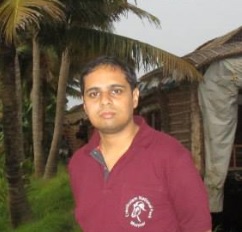 Despite the enormous diversity that South Asia encompasses, it has its fair share of common problems in which there is a need for greater co-operation and learning. A key issue is the neglected problem of arsenic groundwater contamination. A study from the Gangetic plains of India found that 100% of the samples analyses had higher than normal levels of arsenic in hair, nail, and urine samples. Another study estimated that more than 13 million people are exposed to higher than normal arsenic levels in drinking water around the course of the Indus river in Pakistan. There is no dearth of such studies from Bangladesh including the one published this month which studied the relation between cognitive scores in Bangladeshi children and elevated blood lead and arsenic and manganese exposure in drinking water. Irrespective of the country, the response has been suboptimal and much more needs to be done to improve the provision of “clean water” in the region.
Despite the enormous diversity that South Asia encompasses, it has its fair share of common problems in which there is a need for greater co-operation and learning. A key issue is the neglected problem of arsenic groundwater contamination. A study from the Gangetic plains of India found that 100% of the samples analyses had higher than normal levels of arsenic in hair, nail, and urine samples. Another study estimated that more than 13 million people are exposed to higher than normal arsenic levels in drinking water around the course of the Indus river in Pakistan. There is no dearth of such studies from Bangladesh including the one published this month which studied the relation between cognitive scores in Bangladeshi children and elevated blood lead and arsenic and manganese exposure in drinking water. Irrespective of the country, the response has been suboptimal and much more needs to be done to improve the provision of “clean water” in the region.
Another issue which is demonstrated in many studies from the region that are published this month is that of gender equality in health. Young married women in rural India who had access to money were more likely to get their partners to use of condoms as well as other contraceptive usage (study), even when adjusted for decision making power within the household and mobility to seek services. The study has some methodological limitations but I see it as an avenue on how the Prime Minister’s Jan Dhan Yojana and the agenda of direct cash transfer through the program might be used for impacting gender equity in health. Two papers from Nepal, one qualitative and another quantitative highlighted the issue of intimate partner violence. There is a need to see it as a public health issue and not just a legal problem. Adding another layer of geographical inequity to the issue, a systematic review on menstrual practices of adolescent Indian girls found that commercial sanitary pad use in rural areas (32%) was half of that in urban areas (67%).
In what should raise alarms for the Pharmacovigilance Programme of India, a systematic review found that that 44 to 67% of health professionals (the majority of them were doctors) were not even aware of the existence of the program. Considering that the population of the included studies was not representative of those in primary healthcare it only means that the reported awareness might be an overestimation.
India has a severe shortage of doctors and nurses, but paradoxically it has too many dental graduates who are left with no career prospects. This has been talked in policy corridors for quite some time already but has come into public debate this month with the publication of a letter in the British Dental Journal. Another letter has created an even greater media storm (here and here) as it highlighted that there is insufficient evidence about the safety and efficacy of Ayurvedic drugs which are being increasingly marketed in the country.
An relevant read for public health professionals is a paper evaluating the compliance of alcohol outlets with regards to sales restrictions in Bhutan. Sales of alcohol are not permitted except from 1 to 10 pm. Wednesday–Monday. It is also not permitted to sell alcohol to underage or intoxicated clients. The authors found that these restrictions had an effect.
Pakistan also published the results of its first anti-tuberculosis(TB) drug resistance survey this month which found that about 3.7% of new TB cases and 18.1% of previously treated TB cases have MDR-TB (multi drug resistance TB).
For the sake of all who are required to “sit” to get their work done, a Cochrane review published last month with a lead author from Nepal, found that there is currently very low quality evidence on whether sit-stand desks actually work (I am an author in the review too). Time to make some real lifestyle changes!
Soumyadeep Bhaumik is a medical doctor from India and he works on evidence synthesis and public health. He is currently studying international public health at the Liverpool School of Tropical Medicine. All opinions are personal. Twitter @DrSoumyadeepB.
Competing interests: I have read and understood BMJ policy on declaration of interests and declare that in the past served in editorial positions in several medical journals, including till recently in an Indian journal. I I have no other relevant conflicts of interests to declare.